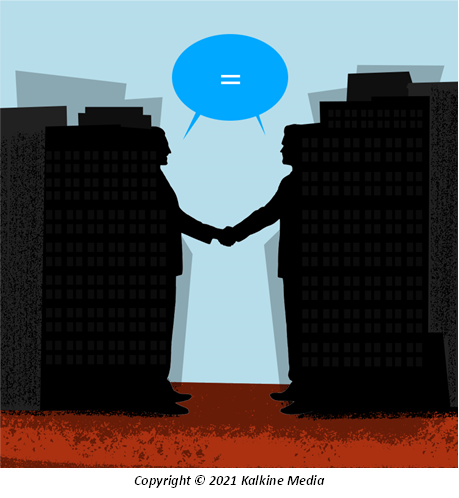What is a futures market?
A futures market is a financial market where investors trade commodity and futures contracts. The futures are derivative contracts that are made for an underlying security or commodity which is to be delivered on a specific date in future at a price which is pre-decided in the contract.

The futures market is also known as a futures exchange.
There are more than a hundred futures exchange market but some of the most common futures markets are the Chicago Board of Trade, New York Mercantile Exchange, Chicago Board of Options Exchange, and Chicago Climate Futures Exchange.
Summary
- A futures market is a financial market where investors trade futures contracts and commodity contracts.
- The futures market is also known as a futures exchange.
- The holder of LEPOs will exercise it on the date of maturity, therefore the traders operate on the margins.
- The most common futures markets are the Chicago Board of Trade, New York Mercantile Exchange, Chicago Board of Options Exchange, and Chicago Climate Futures Exchange.
- Futures market has been digitalised.
Frequently asked Questions (FAQs)
Is the futures market digitalised?
Traditionally, traders used to shout loud and use hand gestures in the trading pit to communicate with other traders. Now the trading pit does not exist, and trading takes place electronically like other markets around the globe.
The traditional trading system is referred to as ‘open outcry trading’ and digital trading is termed as ‘electronic trading’.
Who regulates the futures market?
Regulatory agencies are responsible for monitoring futures markets. Each exchange has a different regulatory agency. To illustrate – Financial Conduct Authority (FCA) regulates the United Kingdoms’ market. Similarly, Commodity Futures Trading Commission regulates the United States futures exchanges.

Why do people trade in the futures market?
The futures market provides the opportunity to speculate and hedge to the investors. If an investor is risk-averse and seeks price stability, then trading in futures contracts will be appealing for them.
How does the futures market operate?
Taking a long position in the futures contract puts an obligation on the investor to purchase the underlying commodity or security on pre-determined futures date and price. Similarly, if an investor is short in futures contract, then he/ she must sell the underlying commodity or security in the future at the pre-determined price.
In a futures contract, the underlying assets are generally stocks, commodities, and bonds. The commodity market includes emission credits, foreign currencies, financial instruments, and bandwidths. Contracts on precious metals like gold, silver, copper; grains and natural gases, are also traded in the futures market.
Participants in the futures market - Hedgers and speculators are the participants in the futures markets. The aim of hedgers is to stabilize their earnings or reduce the cost of business operations rather than making a profit by trading in commodity futures. On the other end, speculators do not want to possess the underlying asset but make a profit by betting on the futures prices of commodities. Speculators maintain liquidity in the market; however, they create volatility in the market to a large extent.
The prices of underlying commodities and futures contracts are determined by demand and supply instead of the futures exchanges. The efficiency and stability of the futures market are maintained due the presence of standardised contracts and clearing members.
Standardised contracts are binding agreements which specify the underlying security, its quantity, date of delivery and price. In effect, the price and size of the contract are same for all the market participants. A buyer has all the knowledge regarding the contract before buying or selling one and adding transparency in the trading.
Clearing members are responsible for settling the payment between the traders. Generally, financial service companies and large banks are the clearing members. They act as a guarantee for each trade and therefore traders are required to deposit money called margins. Margins ensure that potential losses are covered with the available funds and the default does not occur during the futures contract agreement. Moreover, the function of clearing members further adds stability in the futures market.
What role does the futures market play?
Futures and commodity markets are complex and fascinating because of their very structure. These markets have a profound effect on the average citizen and on economies around the globe. The commodity market is volatile and price change can affect a major segment of an economy. In effect, political actions might spur in the form of tax changes, policy changes, subsidies, or a change in baking policies. Moreover, social action might take place in terms of innovation, substitution, and supply-demand within the market.
For commodity contracts by trading commodities in the futures markets, commodity holders can safeguard themselves from the negative price change till they are ready to sell their commodity in the physical markets. As futures markets maintain stability and liquidity in the exchanges, companies, manufacturers and economise can operate in an effective and efficient manner.
How is income generated in the futures market?
Futures markets generate revenue from the trading of futures contracts done by traders in the futures exchange. Certain amount of fees may be associated with trade processing. Moreover, firms and traders are charged for making an account where they can conduct transactions.
What is the difference between the cash market and the futures market?
Cash Market: It is a marketplace where securities and commodities are traded in exchange for cash, that is, transactions are settled on a cash basis. It is also known as spot markets. Cash transactions can take place through both the stock exchange and over the counter. The purpose of entering a cash market is to gain or sell the ownership of the commodity or security.
Futures market: It is a financial market where futures contracts are traded between two parties. It is also known as a futures exchange. Having ownership of futures contract does not give the ownership of the underlying asset. The ownership of the asset is gained on the due date of the futures contract by the holder of the contract.

 Please wait processing your request...
Please wait processing your request...